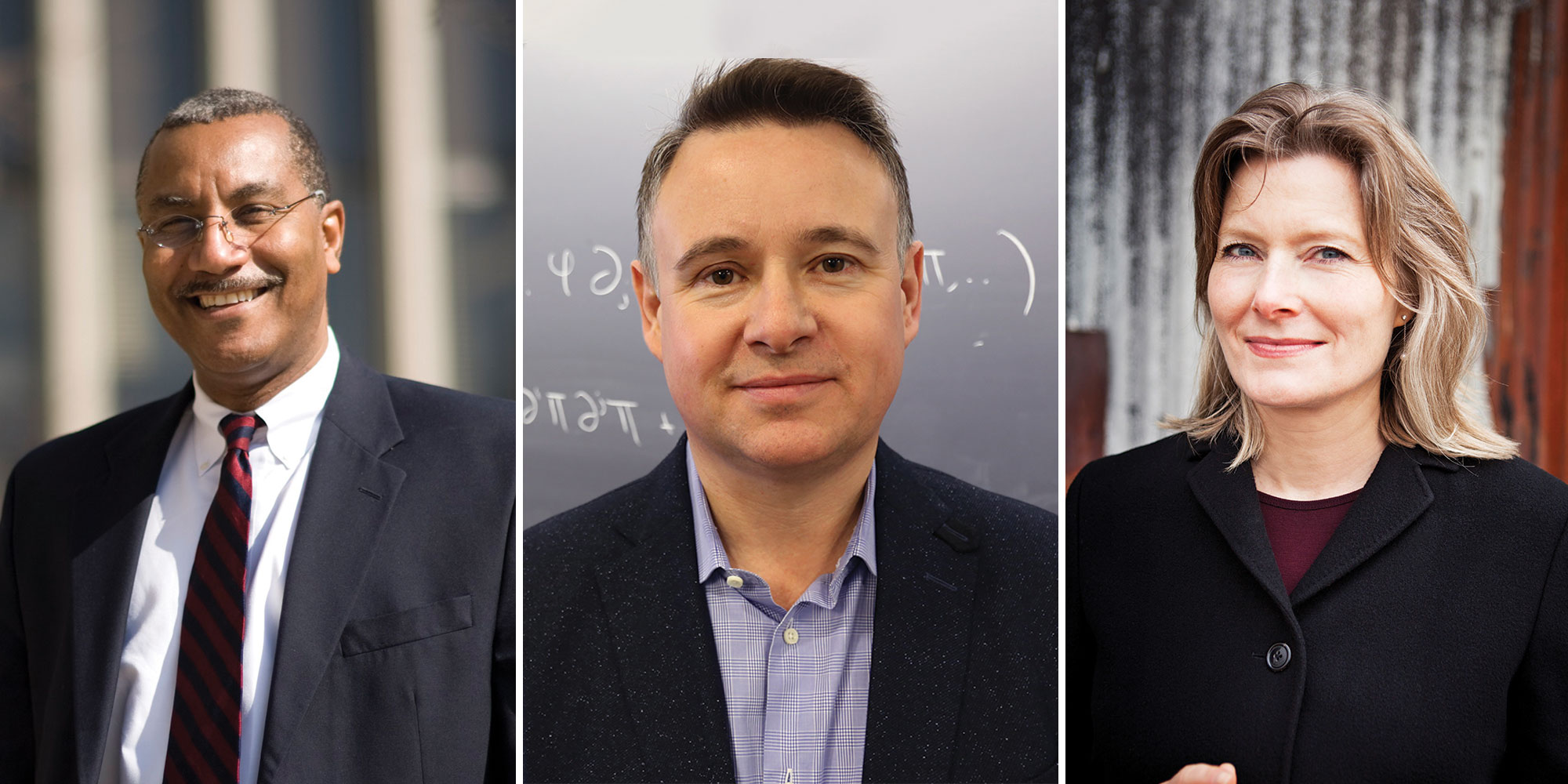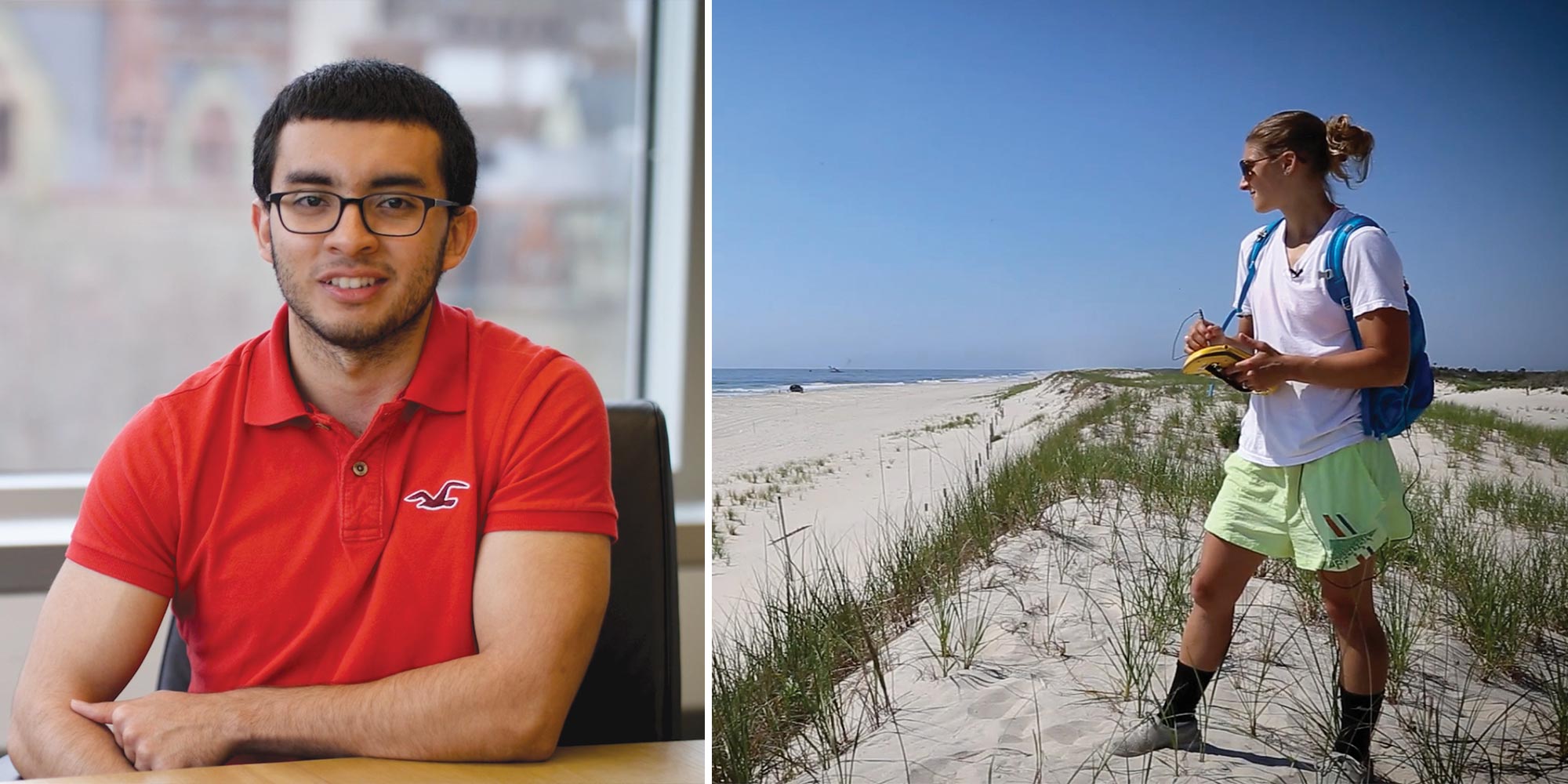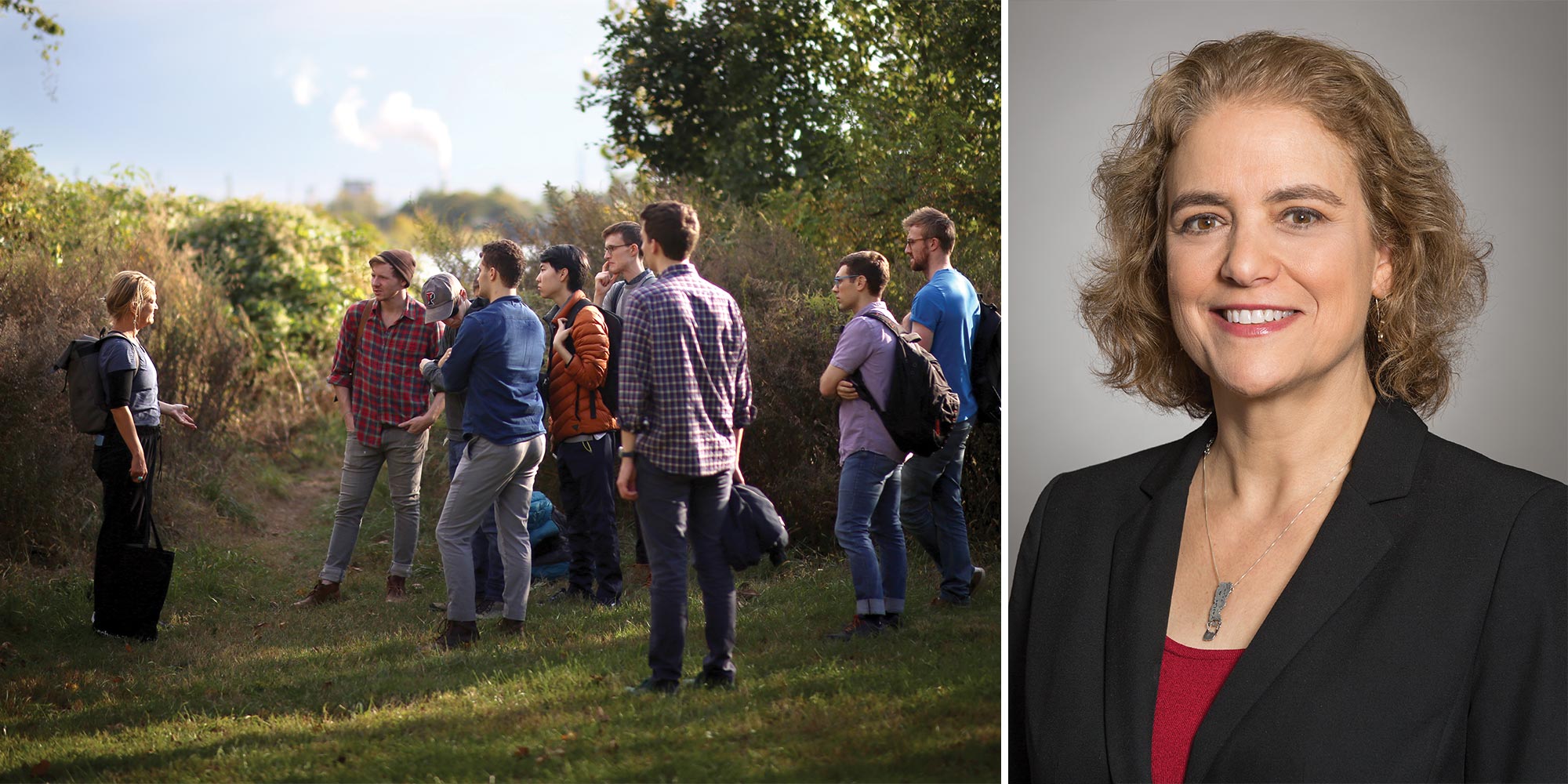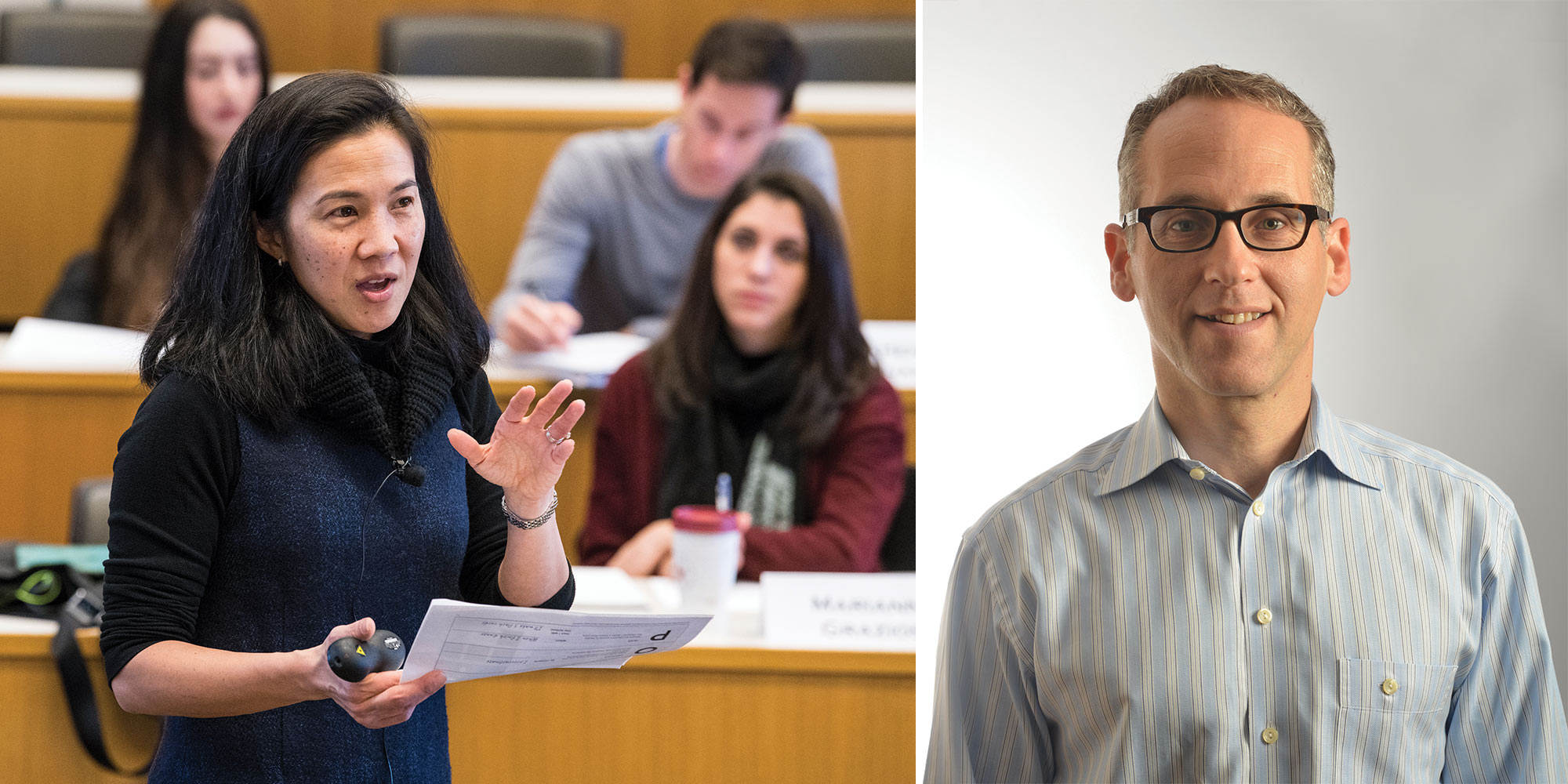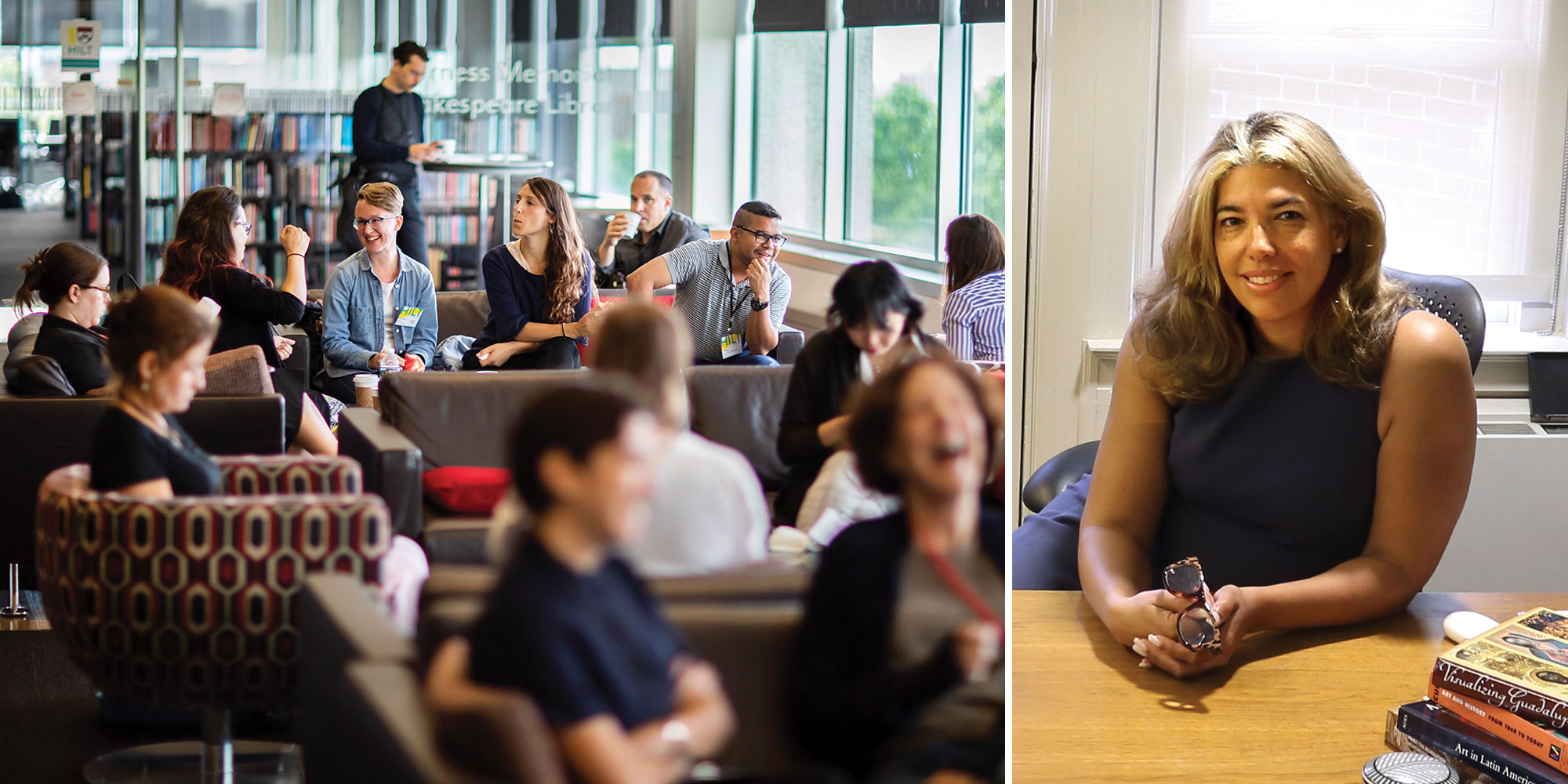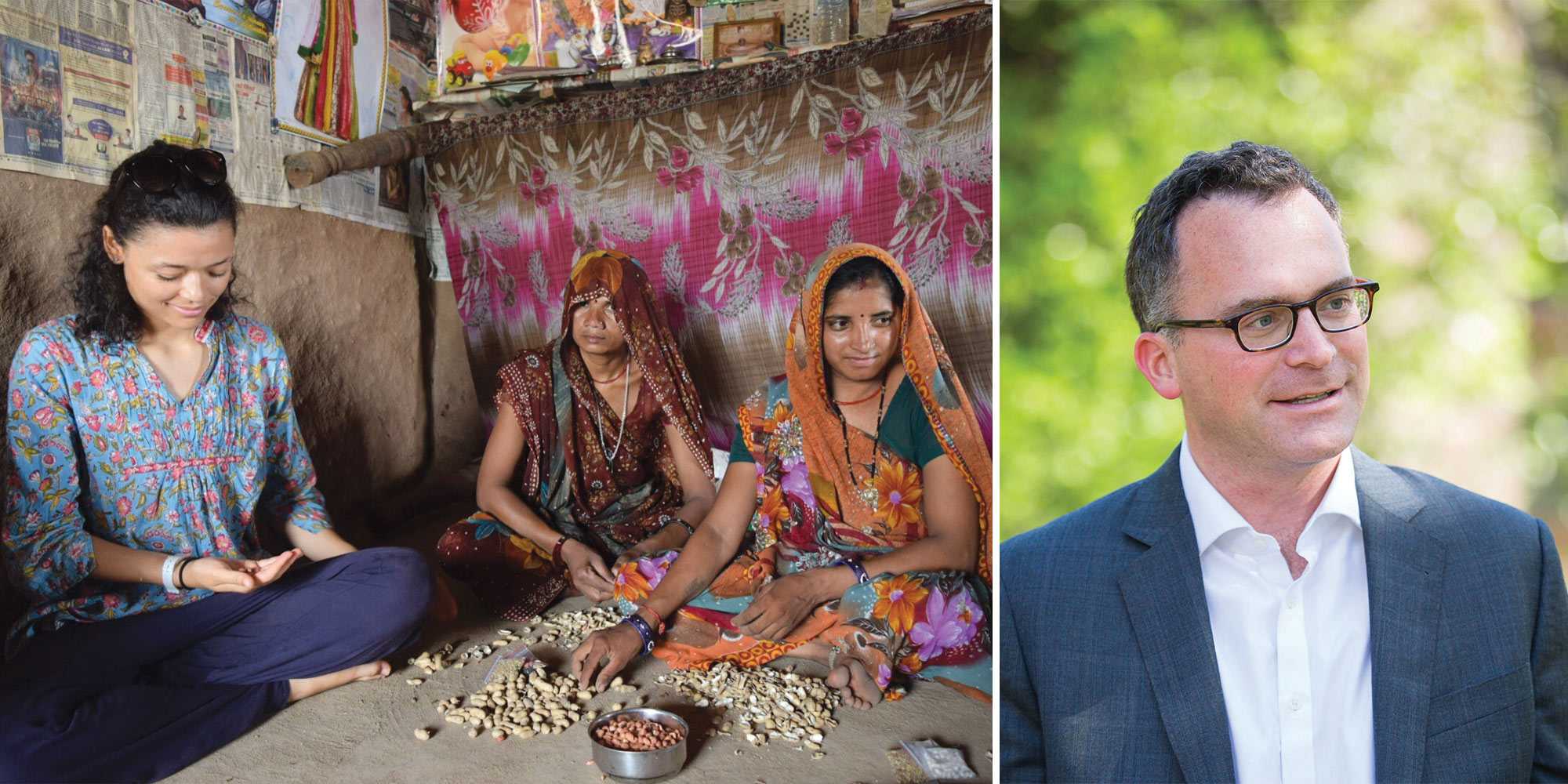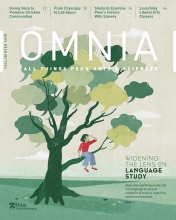The Power of Penn Arts & Sciences
Enhancing Foundations, Transcending Frontiers
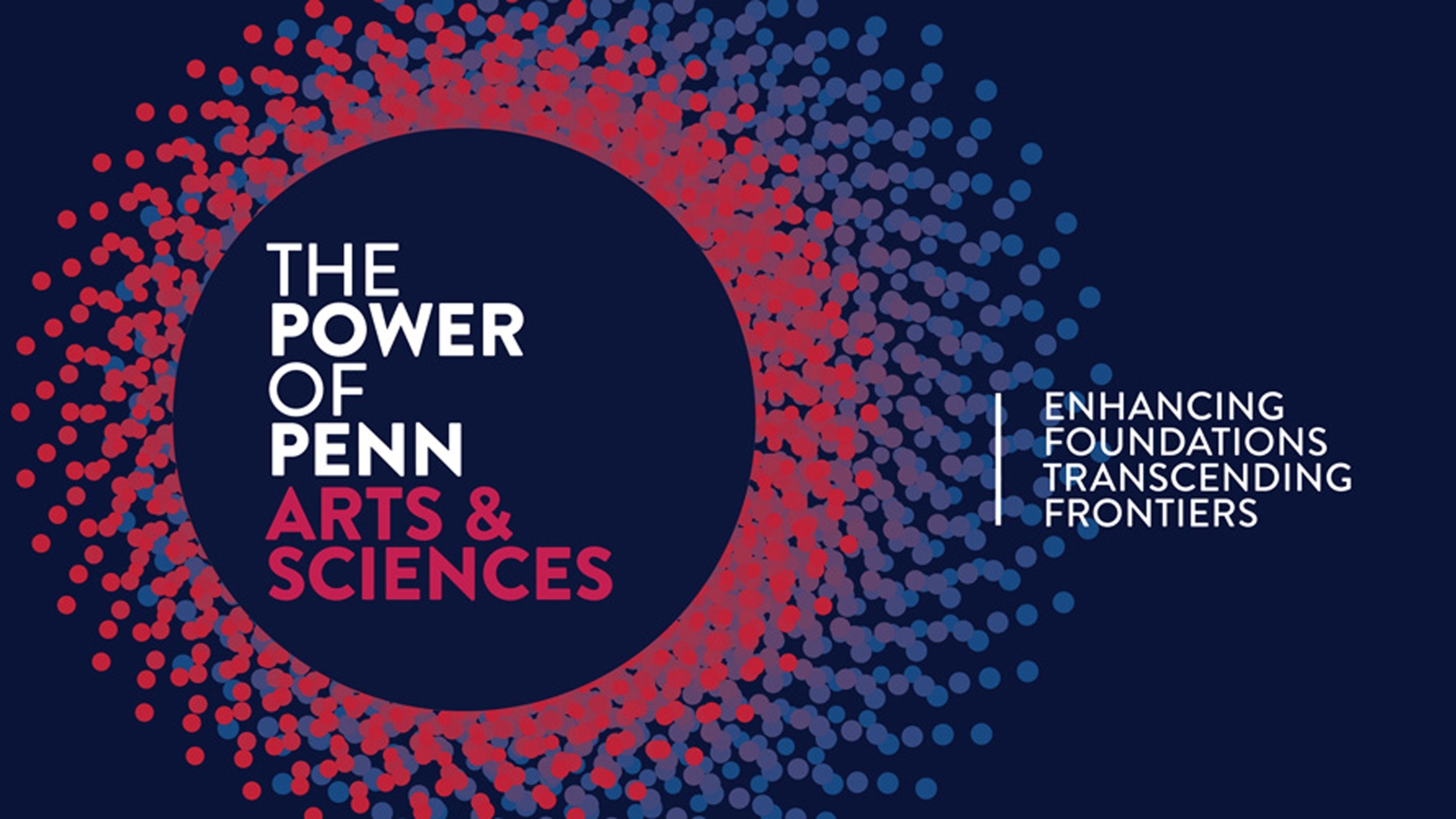
Penn Arts and Sciences combines innovation and excellence at the intellectual heart of a great university. The Power of Penn Arts & Sciences Campaign supports our vision for advancing the core that keeps Penn exceptional.
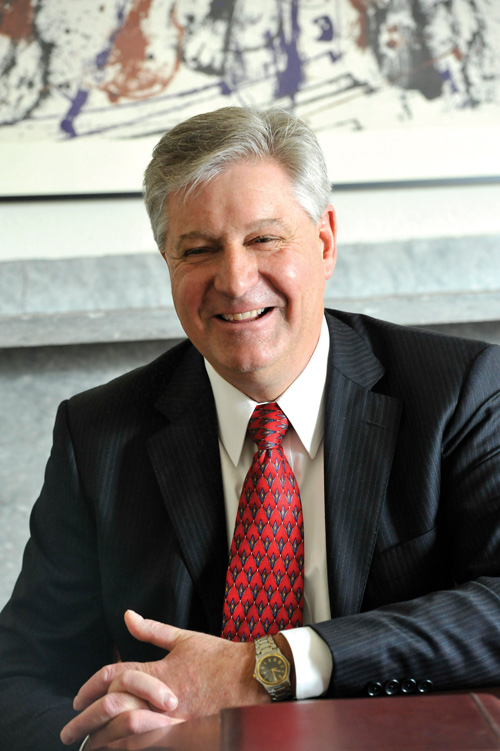
Steven J. Fluharty, Dean and Thomas S. Gates, Jr. Professor of Psychology, Pharmacology, and Neuroscience
Photo credit: Candace DiCarlo
Penn Arts and Sciences is a community of students and scholars engaged in pressing issues locally, nationally, and globally and a cutting-edge institution with a legacy of innovation. Our 27 departments are the intellectual heart that drives inquiry across Penn, and our 21st-century approach to the liberal arts develops the skills and practices that shape our students’ careers, and lives.
The Power of Penn Arts & Sciences Campaign will allow us to enhance our foundations and transcend the frontiers of knowledge. With the Campaign, we will sustain and strengthen our faculty and empower our students to realize their full potential. We will foster an inclusive community of faculty and students to ensure the vitality and fresh perspectives that diversity brings. And we will pursue innovative paths in research and learning to solve challenges that threaten to outrun our readiness to manage them, from creating a sustainable planet and harnessing the power of the brain, to exploring the human experience and driving global change.
“Every day, I’m inspired by the innovative and deeply thoughtful work done by our students and faculty. The research, teaching, and learning opportunities the Campaign supports will only amplify those efforts. I’m eager to see what lies ahead as the Campaign builds on the extraordinary momentum already growing at Penn Arts and Sciences.” - Steven J. Fluharty, Dean and Thomas S. Gates, Jr. Professor of Psychology, Pharmacology, and Neuroscience
Advancing Faculty Distinction
Our faculty are essential to excellence across the University, and we take full advantage of every opportunity to sustain and strengthen a diverse group of dynamic, collaborative scholars and teachers. We will enhance our resources to recruit and retain the very best, through prestigious endowed chairs and other forms of faculty support.
Joseph S. Francisco, President’s Distinguished Professor of Earth and Environmental Science, is an internationally recognized scholar of atmospheric chemistry and chemical kinetics. Francisco has a secondary appointment in the Department of Chemistry and his work spans disciplines, positioned at the crossroads of chemical, earth, and environmental sciences. The President’s Distinguished Professorship was established to support the teaching and research of faculty members who are leaders in their fields.
The research of Mark Trodden, Fay R. and Eugene L. Langberg Professor of Physics, lies at the border of particle physics and cosmology. Using clues contained in cosmological data, his work addresses the fundamental physics underlying such phenomena as the nature of dark matter and dark energy and the physics of the early universe. He maps out viable models of the accelerating universe and has proposed one of the most-studied approaches to the idea that a modification of general relativity may explain cosmic acceleration.
Jennifer Egan, Pulitzer Prize-winning author of A Visit From the Goon Squad, is the School’s latest artist-in-residence. A member of the College’s class of 1985, Egan will deliver public lectures and teach an undergraduate course. Artists-in-residence enrich campus life and add to the array of voices and experiences that contribute to student learning.
Opportunities to support faculty include:
Penn Integrates Knowledge (PIK) Professorships
PIK professors hold joint appointments in two schools and exemplify excellence in multidisciplinary scholarship and learning. They are remarkable for their drive to solve complex, real-world problems and deepen the University’s rich tradition of collaboration across disciplinary boundaries.
Endowed Professorships
An indispensable tool for both recruiting distinguished faculty and retaining and rewarding current faculty who are among the best in their fields, endowed professorships are held by faculty who are empowered to pursue new inquiry, take risks, and produce groundbreaking work.
Professors of Practice
Held by leaders outside of academia, these positions allow departments to tap into a well of expertise not traditionally part of a university education to create powerful collaborations between academic and practical experts.
Artists-in-Residence
Based in departments and centers and committed to working with students and faculty, artists-in-residence are outstanding visual artists, actors, musicians, writers, and other creative practitioners who consider academic, social, and cultural questions in light of their creative practices and are vital voices in our community.
Realizing Student Potential
Penn Arts and Sciences teaches every undergraduate at the University, fostering the traits that distinguish Penn graduates: adults driven by curiosity, creativity, and critical thinking, who understand context and know how to communicate. We will promote access, diversity, and opportunity through expanded resources for scholarships and for curricular innovation that will catalyze learning in every field.
Bianca Reo Charbonneau, a doctoral candidate in biology, channeled her dismay at the destruction wrought by Hurricane Sandy into an academic exploration of the resiliency of sand dunes. Her research, supported by the Department of Defense, investigates how different plant species and types of fencing contribute to erosion-prevention and dune regrowth post-storm.
Sebastián González, C’20, says that “oftentimes, when you’re a first-generation student, it feels like you don’t have a niche here on campus. But I want more students to be able to find that niche.” He’s found his place at Penn: in physics and astronomy lectures, particularly those that deal with astrophysics and dark matter; as a leader in Penn First, a group founded by first-generation, low-income students; and in the Penn Symphony Orchestra, where he’s the principal tubist.
Opportunities to support students include:
Undergraduate Scholarships
Scholarships are key to Penn’s commitment to need-blind admissions and grant-funded aid for all admitted students, ensuring that the brightest students can come to Penn and graduate without the burden of insurmountable debt.
Graduate Fellowships
Fellowships provide the resources necessary for students to focus on their work and demonstrate our commitment to providing an intellectual home for them at Penn Arts and Sciences.
Program on Opinion Research and Election Studies (PORES)
This undergraduate program provides hands-on training in data-driven analysis. Gifts may fund a dedicated PORES space in the new Ronald O. Perelman Center for Political Science and Economics, the PORES directorship, or student fellowships.
Creating a Sustainable Planet
The urgent need to revolutionize our thinking about energy can no longer be disputed. Scientific advances, combined with a deeper understanding of human interactions with the natural world, form the path to sustainable solutions to society’s energy needs. We will invest in a new Science Research Building and a variety of initiatives designed to advance research and convert understanding to policy, and policy to action.
When the Penn Program in Environmental Humanities (PPEH) was launched in 2014, it changed a conversation that was purely scientific into a broader dialogue. PPEH has expanded programs across the University and built partnerships within Philadelphia. Its new initiative, Rising Waters, is exploring the future of rivers and coastal cities through research in Philadelphia and Mumbai, India—two cities where racial and class geography have been and may continue to be impacted by water.
Karen Goldberg, Vagelos Professor in Energy Research, is a renowned investigator who is working to eliminate the world’s reliance on fossil fuels and instead produce valuable chemicals and fuels from a range of feedstocks. As the director of the Vagelos Institute for Energy Science and Technology, Goldberg oversees and drives collaboration among researchers who are addressing scientific and technological problems in the areas of alternative sources of energy and energy use and storage.
Opportunities to support energy and sustainability include:
Science Research Building
Dedicated to energy research, this building will be the essential incubator for our scientists and engineers and a place where they will be able to immerse fully in innovative, collaborative work and mentoring in their pursuit of energy solutions.
Penn Program in Environmental Humanities
This research and outreach hub integrates scientific and humanistic ways of understanding and encourages members of the public to engage with the natural world. Gifts may endow the program or directorship, or support research fellowships and public programs.
Harnessing the Power of the Brain
New technologies have brought about an unprecedented ability to understand brain activity. The next wave of research holds the potential to unlock insights into phenomena that span from decision making to the fundamental nature of human intelligence and to advance understanding and treatment of brain disorders including Parkinson’s, Huntington’s, and Tourette syndrome. We will drive innovative research and education and create opportunities for students and faculty to move research forward.
Christopher H. Browne Distinguished Professor of Psychology Angela Duckworth’s research on grit— defined as perseverance and passion for long-term goals—has become a touchstone for teachers, parents, coaches, employers, and others who cultivate success. Duckworth, a 2013 MacArthur Fellow, is the co-founder of the Behavior Change for Good Initiative, a partnership with Wharton that unites dozens of leaders from all disciplines to help improve people’s daily decisions about health, education, and savings. Together, researchers seek to address the question: How can we make behavior change stick?
Michael Kahana, Professor of Psychology, is leading teams of Penn neuroscientists in developing next-generation technologies to improve memory function. He and his collaborators have constructed the first comprehensive map of electrical connectivity in the brain and demonstrated that precisely timed electrical stimulation to the left side of the brain can reliably and significantly enhance learning and memory performance.
Opportunities to support brain research include:
MindCORE
MindCORE is a center that integrates knowledge of the mind, the brain, and behavior through the marriage of natural science tools and social science approaches. MindCORE focuses its research in two areas: social and decision sciences and language science. Gifts may endow the Center or directorship or support student research fellowships, faculty research, or educational outreach programs.
Behavior Change for Good
This collaborative project, led by Angela Duckworth and Wharton’s Katherine Milkman, unites 38 leaders in the social sciences, business, medicine, computer science, and neuroscience across 16 top research universities to develop a model to improve daily decision making.
Exploring the Human Experience
Engagement with culture, history, and creativity enriches individuals’ lives and speaks to the essence of what it means to be human. By combining traditional methods of inquiry with powerful new technology- and data-driven tools, we are opening new horizons in understanding a complex, interconnected world. We will strengthen humanistic inquiry and appreciation of diverse perspectives through cross-disciplinary faculty recruitment, support of centers, and investment in the new frontiers of the digital humanities.
A new undergraduate minor in digital humanities is designed for students across Penn who want to augment their studies with advanced digital research techniques and in-depth engagement with theoretical and practical questions. It offers a systematic program of study and training in digital research tools and methodologies, encouraging students to develop the insight to be both thoughtful users of technology and sophisticated critics of digital work.
Gwendolyn DuBois Shaw, Associate Professor of History of Art, introduced Penn students to the vibrant NGO community arts scene of contemporary Cuba thank to a grant from the School’s Making a Difference in Diverse Communities initiative. Her project, Penn-in-Havana: Visual Culture and Public Art in Cuba, saw students working directly with artists and activists in Cuba.
Opportunities to support engagement with culture, history, and creativity include:
Center for Africana Studies
An intellectual leader in scholarship and programming on Africa and the diaspora, the Center supports a broad range of disciplines, interests, and regions of study and engages in vital, forward-looking research. Gifts may endow the Center or directorship, or fund postdoctoral fellowships or student learning and research.
The RealArts Program
This program connects qualified students with paid opportunities in arts and culture fields include film and entertainment, journalism and publishing. Gifts may fund internships, prizes, or mentorship programs.
Driving Global Change
The forces of globalization give rise to issues that transcend national boundaries. With a wealth of global expertise and perspectives embedded in our faculty, and a community committed to engagement, Penn Arts and Sciences is well positioned to advance both global understanding and solutions. Investments in our faculty and in innovative projects will broaden the horizons of our students and strengthen Penn’s impact in communities around the world.
The Center for the Advanced Study of India (CASI)—integral to Penn’s global reputation as a leader in scholarship about India—partners with grassroots organizations to provide unique internship and research experiences for Penn undergraduates and graduate students. Students work with organizations that have a deep commitment to their communities, and focus on a range of development issues including health, rural development, environmental sustainability, education, gender, and social enterprise.
Michael Weisberg, Professor and Chair of Philosophy, received a Making a Difference in Diverse Communities grant for LAVA: Laboratorio para apreciar la vida y el ambiente. This effort, which builds upon a previous School-funded project, grows community science initiatives in the Galápagos Archipelago. Weisberg’s project trains high school students to collect and understand data about the local sea lion population and works with women in the community to monitor the marine reserve.
Opportunities to support global research include:
Making a Difference in Diverse Communities
These School grants encourage faculty to explore innovative ways of applying their expertise. Through a combination of coursework, research, and service, the projects address issues of diversity and inequality at the local, national, and international level.
Center for the Study of Contemporary China
Integral to Penn’s leadership in research and teaching about China, the Center offers faculty grants and funding for postdoctoral fellowships and visiting scholars. Gifts may endow the Center or directorship, or fund a dedicated space in the Ronald O. Perelman Center for Political Science and Economics or speaker series and annual lectures.
Center for the Advanced Study of India
The Center engages in policy-relevant research focused on present-day challenges. Gifts may endow the Center; support visiting scholars, research publications, or student, faculty, or postdoctoral research. Gifts may also be used to fund a dedicated space in the Ronald O. Perelman Center for Political Science and Economics.
Center for the Study of Ethnicity, Race, and Immigration
The Center, the first of its kind to address the intersection of narratives surrounding ethnicity, race, and immigration, positions Penn as a leader in progressive research on race and the American experience. Gifts may endow the Center or directorship or support faculty, postdoctoral, graduate, or undergraduate research.
To learn more about the Power of Penn Arts & Sciences and ways to support our priorities, contact: Laura Weber, Assistant Vice Dean of Advancement, lweber@sas.upenn.edu
Photographers: Candace DiCarlo, Kyle Kielinski, Alex Schein, Brooke Sietinsons, Eric Sucar, Pieter M. Van Hattem

